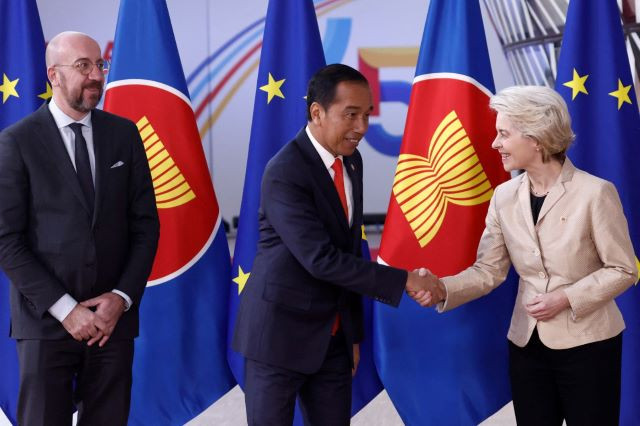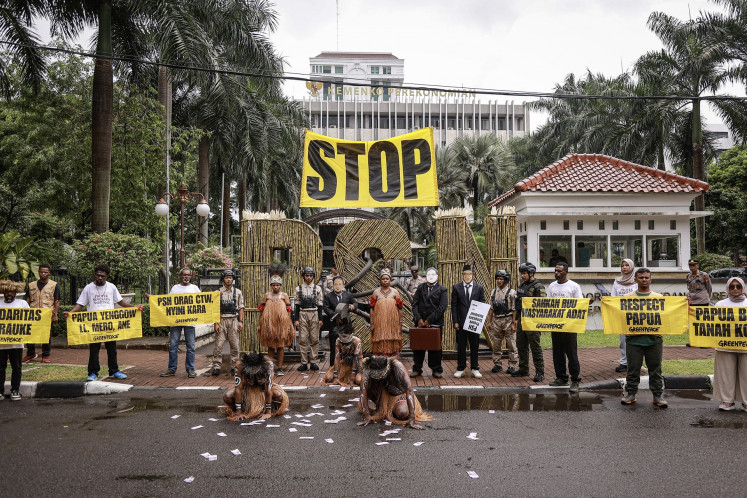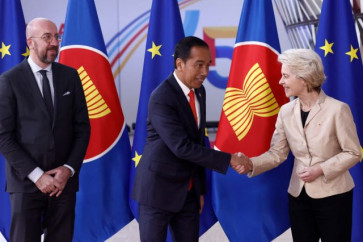Popular Reads
Top Results
Can't find what you're looking for?
View all search resultsPopular Reads
Top Results
Can't find what you're looking for?
View all search resultsEnvironmental equity in the Indonesia-EU CEPA
Indonesia and the EU need to take an innovative approach to balance environmental goals and socioeconomic considerations in the TSD chapter, which is the main challenge to ironing out their CEPA.
Change text size
Gift Premium Articles
to Anyone
 Union of unions: President Joko “Jokowi” Widodo (center) shakes hands with European Commission president Ursula von der Leyen (right) as European Council president Charles Michel looks on at the EU-ASEAN summit at the European Council headquarters in Brussels on Dec. 14, 2022. (AFP/Kenzo Tribouillard)
Union of unions: President Joko “Jokowi” Widodo (center) shakes hands with European Commission president Ursula von der Leyen (right) as European Council president Charles Michel looks on at the EU-ASEAN summit at the European Council headquarters in Brussels on Dec. 14, 2022. (AFP/Kenzo Tribouillard)
A
s Indonesia and the European Union (EU) enter the 17th round of negotiations on their economic partnership from Feb. 26 to March 1, the agreement's Trade and Sustainable Development (TSD) chapter stands as the main point of divergence.
The two parties have set an ambitious target of reaching a substantial conclusion before the year-end, but this requires overcoming the challenge of reconciling their differences in integrating sustainable development objectives within the framework of the Indonesia-EU Comprehensive Economic Partnership Agreement (IEU CEPA).
Drawing from its recent trade agreement with Vietnam, the EU has proposed that the TSD chapter should uphold high international environmental and labor standards to prevent a “race to the bottom” scenario, where competition is based on lowering standards.
However, the EU is reluctant to consider the trade and economic aspects of sustainable development. Instead, it seeks to maintain autonomy in implementing higher environmental and labor standards that are separate from the broader consideration of the TSD chapter, but can be justified as a “legitimate right to regulate”, even if such measures are trade restrictive or discriminatory.
In contrast, Indonesia advocates for a balanced approach that fosters mutually supportive relationships between the three pillars of sustainable development: economic growth, social development and environmental protection.
Through its trade agreement with the European Free Trade Association (EFTA), Indonesia emphasized that the TSD chapter should catalyze market incentives to encourage trade in sustainably certified products, especially in the forestry, fisheries and palm oil sectors. Indonesia thus believes that enforcing environmental and labor commitments should not be at the expense of trade and economic development.
Bridging these divergences necessitates an innovative approach to achieve equitable balance between trade and environmental considerations in the IEU CEPA’s TSD chapter. This approach entails several principles.


















